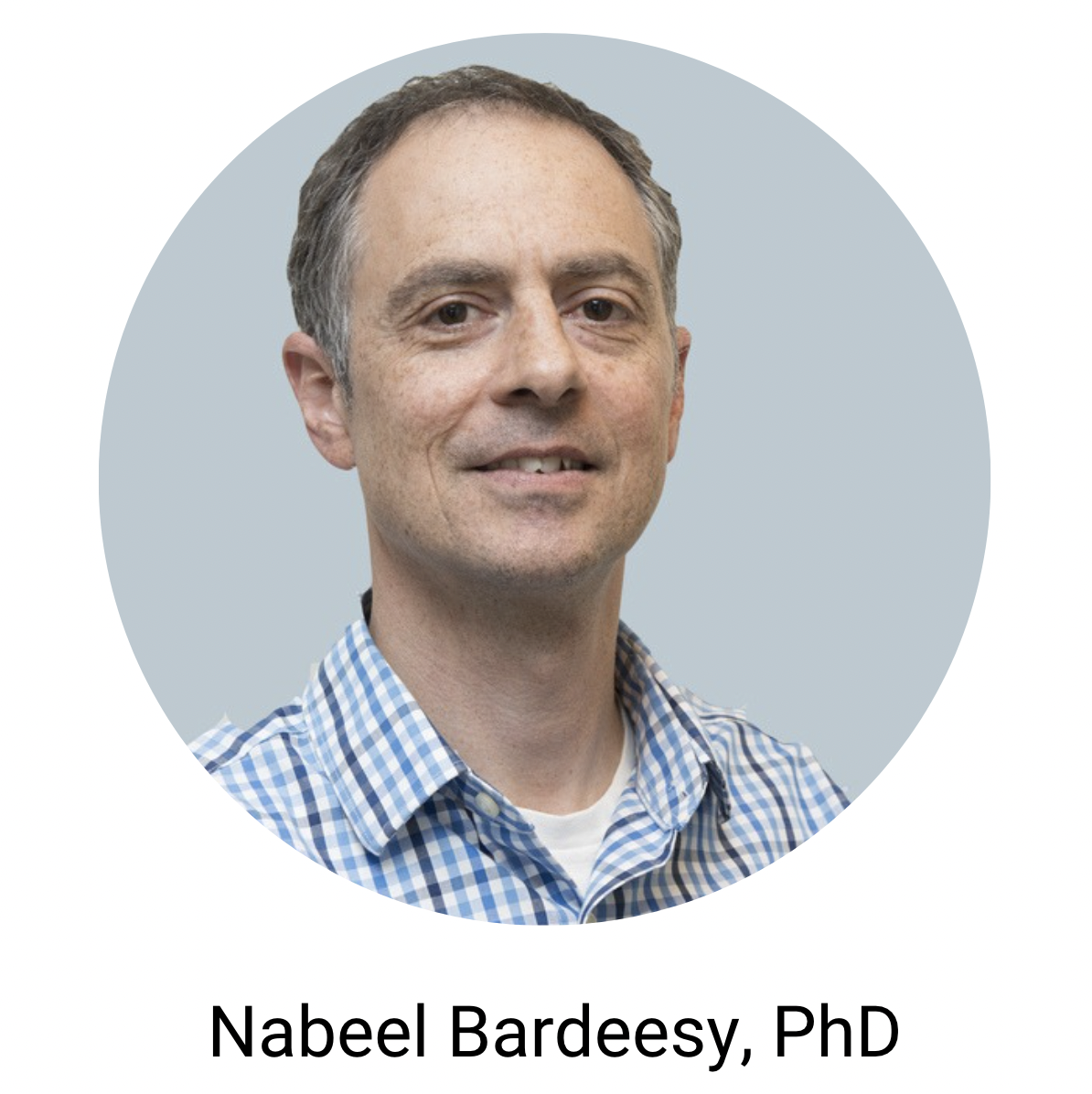NewsOct | 3 | 2024
Research Spotlight: New Insights into a Rare Liver Cancer in Adolescents and Young Adults

Nabeel Bardeesy, PhD, an investigator in the Krantz Center for Cancer Research in the Mass General Cancer Center and a Professor of Medicine at Harvard Medical School, is senior author of a new study in Cancer Discovery, DNAJB1-PRKACA Fusion Drives Fibrolamellar Liver Cancer Through Impaired SIK Signaling and CRTC2/p300-mediated Transcriptional Reprogramming, a collaboration with Taran Gujral at Fred Hutchinson Cancer Institute in Seattle.
Ilaria Gritti, PhD, a research fellow in the Mass General Cancer Center, is first author of the study.
Fibrolamellar carcinoma (FLC) is a rare liver cancer of adolescents and young adults. Some patients benefit from surgery, although this is not possible in many cases. Unfortunately, other treatments such as chemotherapy and immunotherapy have shown limited effectiveness.
Understanding the genetic changes that define FLC could help guide the development of improved treatments. A notable genetic change in this tumor type generates an abnormal fusion of two proteins, DNAJB1 and PRKACA, this causes the PRKACA portion (also known as PKA), to be constantly switched on.
While medicines that block the function of DNAJB1-PRKACA (PKAfus for short). slow tumors in mouse models of FLC, they also affect PKA in normal cells of the body and may not be safe for patients.
Our study sought to uncover the networks controlled by PKAfus that lead to cancer. Addressing this question is important since more precisely defining how PKAfus causes cancer growth could identify other targets for drugs that may be safe and effective.
Using tumor cells derived from patients with FLC as well as mouse cells altered to produce PKAfus, the research team identified a series of biochemical changes necessary for this cancer-causing function, with proteins called Salt-Inducible Kinases (SIKs) playing a major role.
Normally, SIKs help maintain cellular balance by regulating gene expression and preventing excessive cell growth. However, in FLC, PKAfus inhibits SIKs, leading to the activation of cancer-promoting pathways.
We found that the CRTC2 protein was particularly important in cancer promotion. CRTC2 is normally trapped in the cytoplasm of the cell by SIK, whereas in FLC cells, CRTC2 remains in the cell nucleus where it switches on a set of genes that are required for growth of FLC in animal models.
We also identified a strategy to block this pathway targeting the p300 which works together CRTC2. Treatment with a p300 inhibitor effectively suppressed tumor growth of the FLC models.
In summary, this work provides insights into the network by which PKAfus causes cancer growth, revealing a central role for blocking SIKs and activating CRTC2 and p300.
Further studies of targeting p300 or CRTC2 or the development of approaches to restore the function of SIKs could lead to new treatments that may improve outcomes for patients with FLC.
Another notable aspect of this study is that the pathways that cause this rare cancer overlap those with that are essential for more common types of pancreatic and lung cancers.
By understanding these shared pathways there may be opportunities to apply knowledge gained from each disease to guide treatments and preventive strategies across the different cancers.
Type
Centers and Departments
Check out the Mass General Research Institute blog
Bench Press highlights the groundbreaking research and boundary-pushing scientists working to improve human health and fight disease.
Support Research at Mass General
Your gift helps fund groundbreaking research aimed at understanding, treating and preventing human disease.
About Massachusetts General Hospital
Massachusetts General Hospital, founded in 1811, is the original and largest teaching hospital of Harvard Medical School. The Mass General Research Institute conducts the largest hospital-based research program in the nation, with annual research operations of more than $1 billion and comprises more than 9,500 researchers working across more than 30 institutes, centers and departments. MGH is a founding member of the Mass General Brigham healthcare system.
